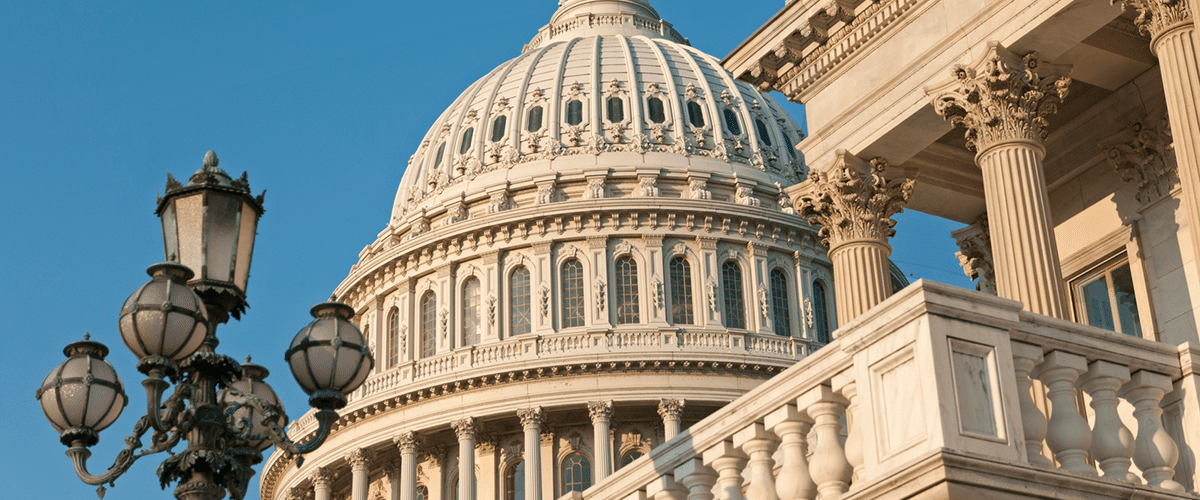[vc_row][vc_column][vc_column_text]Various federal lawmakers have introduced marijuana-related bills that could transform the United State’s laws on cannabis.
On the heels of what was a historic year for cannabis reform in 2016, members of the 115th U.S. Congress have already introduced an abundance of bills designed to reform the nation’s current cannabis policy.
As it stands now, marijuana is federally illegal and classified as a Schedule I substance under the Controlled Substance Act. However, 28 states and Washington D.C. have passed comprehensive medical marijuana laws, and eight of those and Washington D.C. have legalized marijuana for recreational purposes.
The Obama administration had taken a hands-off approach to enforcing federal law, allowing states to pass and implement cannabis legislation without interference from the federal government. Officials under the Trump administration, however, have made statements suggesting there could be greater federal enforcement in the future, bringing uncertainty to the industry and prompting lawmakers to introduce and pursue legislation that would protect the nation’s $6.7 billion market.
Here’s a look at the cannabis bills currently before the U.S. Congress:
Ending Marijuana Prohibition Act of 2017
Introduced by freshman Republican representative Thomas Garrett (R-Virginia), the Ending Marijuana Prohibition Act of 2017 (H.R. 1227) would decriminalize marijuana and remove cannabis from the Controlled Substances Act entirely. States would then be allowed to make their own policies regarding marijuana and decide whether or not to tax and regulate it like alcohol or tobacco. The bill has bipartisan support, and Representative Tulsi Gabbard (D-Hawaii), sponsor of the bill, recently delivered a speech on the floor of the U.S. House of Representatives, urging lawmakers to support the bill.
“Path to Marijuana Reform” Package of Three Bills
Most recently, a newly formed bipartisan “Cannabis Caucus” – made up of Rep. Dana Rohrabacher (R-California), Rep. Earl Blumenauer (D-Oregon), Rep. Ed Perlmutter (D-Colorado), Rep. Jared Polis (C-Colorado), and Rep. Don Young (Alaska) — introduced a bundle of cannabis legislation its referring to as the “Path to Marijuana Reform” package. The three bills are aimed at protecting existing state-based marijuana programs and address issues such as de-scheduling, decriminalization, research, taxation, banking, and individual protections.
Small Business Tax Equity Act of 2017
The Small Business Tax Equity Act (S.B. 777, H.R. 1810) would create an exception to Internal Revenue Code section 280E to allow businesses that are compliant with state laws to claim deductions and credits associated with the sale of cannabis.
Responsibly Addressing the Marijuana Policy Gap Act
The Responsibly Addressing the Marijuana Policy Gap Act (S.B. 780, H.R. 1824) would eliminate federal criminal penalties and civil asset forfeiture for businesses and individuals that are compliant with state law. The bill would also remove banking barriers, ensure access to bankruptcy protection, ease restrictions on cannabis research, and allow for advertising. Criminal records for certain marijuana-related offenses would be expunged and federal civil service employees would no longer be subject to a marijuana drug test.
Marijuana Revenue and Regulation Act
The Marijuana Revenue and Regulation Act (S.B. 776, H.R. 1823) would remove marijuana from the Controlled Substances Act, allowing states to pass and implement marijuana laws without interference. While the bill would not legalize marijuana federally, it would impose a federal excise tax regimen on marijuana products and require marijuana businesses to obtain a permit from Treasury before commencing operations.[/vc_column_text][/vc_column][/vc_row][vc_row][vc_column][vc_single_image image=”17313″ img_size=”1200×250″ onclick=”custom_link” img_link_target=”_blank” link=”https://www.medicalmarijuanainc.com/overview-of-u-s-medical-marijuana-law/”][/vc_column][/vc_row][vc_row][vc_column][vc_column_text]
The Veterans Equal Access Act
The Veterans Equal Access Act (H.R. 1820), introduced by Rep. Earl Blumenauer (D-Oregon), would authorize health care providers working within the Department of Veterans Affairs to discuss marijuana as a potential treatment in states that have established medical marijuana programs. Research indicates that cannabis could be beneficial for post-traumatic stress disorder (PTSD) and pain.
Regulate Marijuana Like Alcohol Act
Introduced by Rep. Jared Polis (D-Colorado), the Regulate Marijuana Like Alcohol Act (H.R. 1841) would remove marijuana in any form from all schedules under the Controlled Substances Act and provide for the regulation of marijuana products. The bill would permit states to establish their own marijuana regulatory policies free from federal interference. The legislation also removes enforcement power from the US Drug Enforcement Administration.
Respect State Marijuana Laws Act of 2017
The Respect State Marijuana Laws Act (H.R. 975) would exempt individuals and entities from certain provisions of the Controlled Substances Act to resolve the current conflict between federal and state marijuana laws. Individuals and businesses complying with state law would be protected from federal prosecution. This is the third time that Rep. Rohrabacher (R-California) has introduced the bill, but this time it is co-sponsored by a bipartisan group of representatives.
Legitimate Use of Medicinal Marihuana Act (LUMMA)
LUMMA, or the Legitimate Use of Medicinal Marihuana Act (H.R. 714), introduced by Rep. H. Morgan Griffith (R-Virginia) would reschedule marijuana as a Schedule II substance under the Controlled Substance Act. This would allow cannabis to be prescribed and used for medicinal purposes in states with medical laws without fear of interference from the federal government.
Compassionate Access Act
The Compassionate Access Act (H.R. 715), also introduced by Rep. Griffith, would reschedule marijuana and allow for its medical use in states that have established comprehensive medical marijuana laws. Cannabidiol derived from marijuana would also be excluded from the definition of “marihuana.”
States’ Medical Marijuana Property Rights Act
The States’ Medical Marijuana Property Rights Act (H.R. 331) would protect individuals and businesses that are complying with a state’s medical marijuana laws. Sponsored by Rep. Barbara Lee (D-California), the bill would amend the Controlled Substances Act to exempt real property from civil forfeiture due to legal medical marijuana-related conduct.
For bills to become law, they must pass the House of Representatives, the Senate, and then be signed by the President of the United States. You can learn more about the current cannabis laws in the U.S. by visiting our education page.[/vc_column_text][/vc_column][/vc_row]






